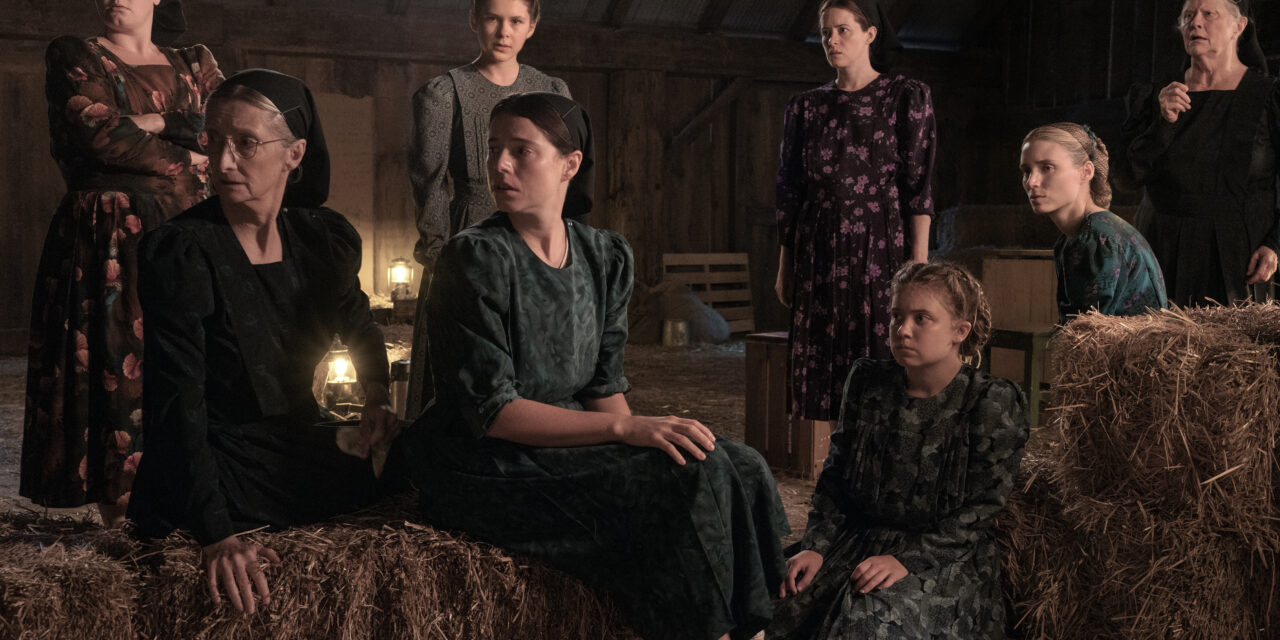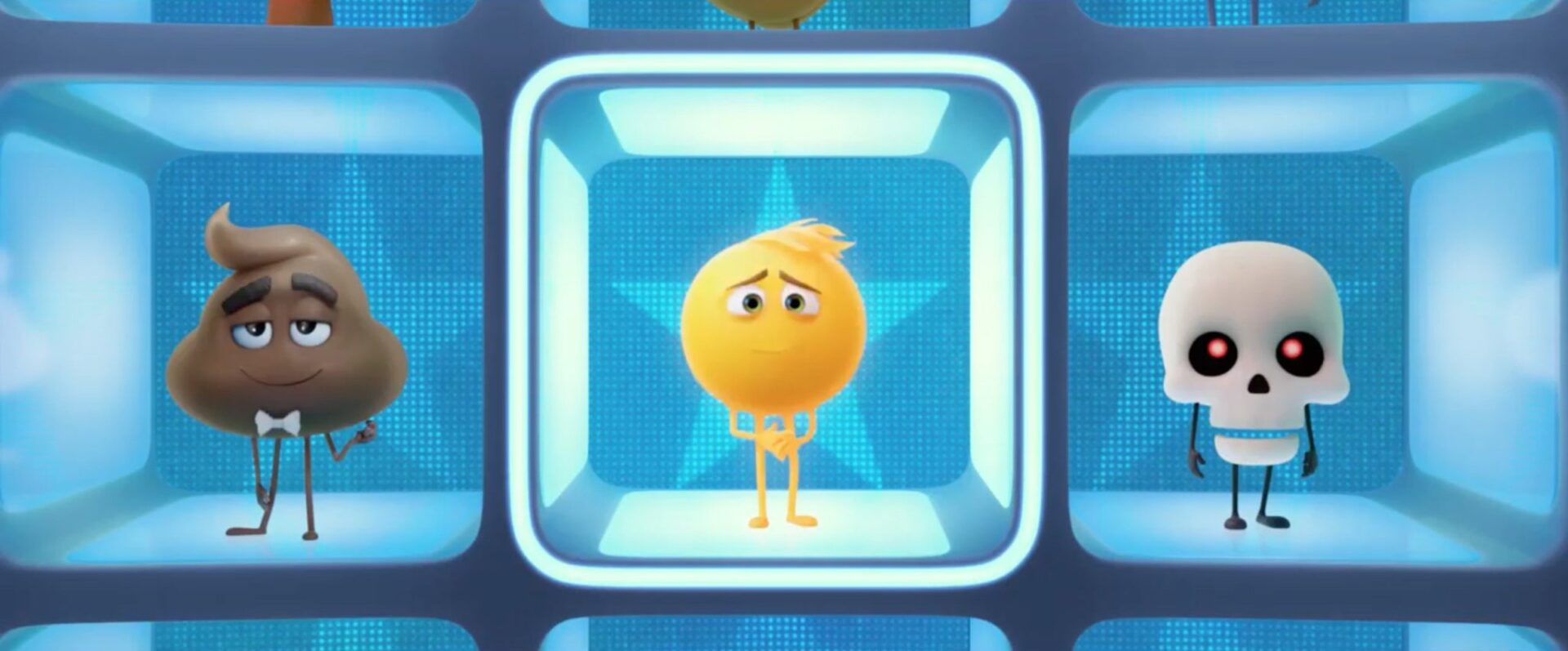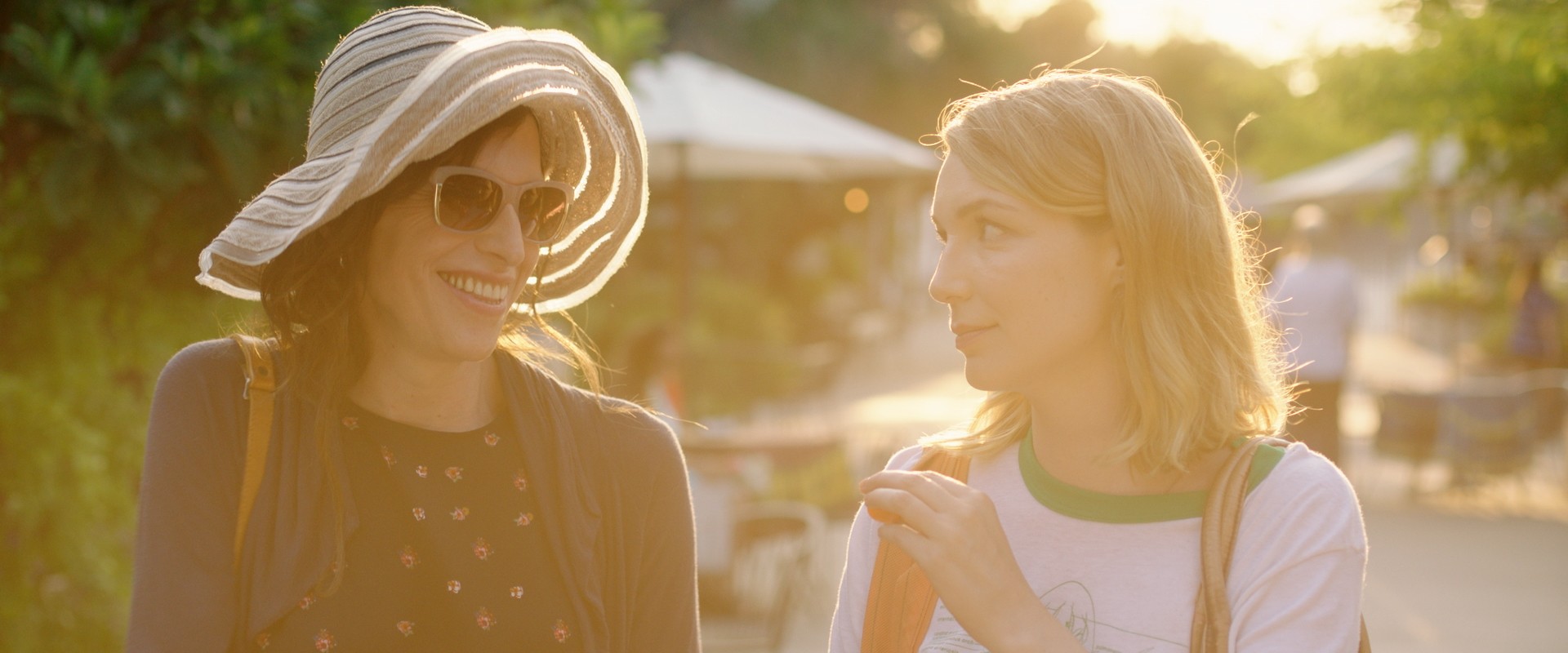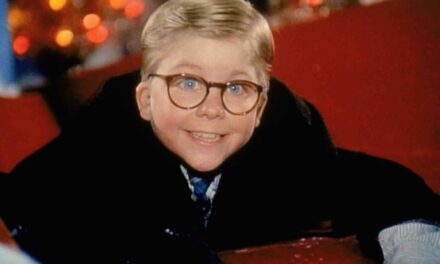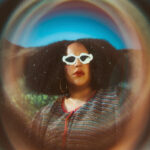This review is a part of Substream’s coverage of the 60th edition of New York Film Festival.
Right from the start, you’ll notice two most distinctive things from writer/director Sarah Polley’s adaptation of Miriam Toews’s novel Women Talking: the first word on the title card and the lack of sound in relation to violence. The opening minutes display a haunting opening shot of a woman named Ona (Rooney Mara) awakening in her bed, disoriented and slightly bloody. In this religious community (Mennonite, as the 2019 novel depicts), the women have been subjected to being drugged, then raped by the men in the town. Because of this, these men have been thrown in jail, while the remaining men have taken it upon themselves to bail them out. Their absence allows the women to consider solutions on their own to protect themselves from this ongoing sexual abuse. As this is about to happen, the words “What follows is an act of female imagination” show. It’s both powerful regarding this film and also sad when you consider the current fight over ownership of the female body. While the costumes, transportation, and way of life seem from another time, the plights and lessons are incredibly urgent.
Cinematographer Luc Montpellier widens the screen canvas, showing that the audience feels like they are flies on the wall to critical conversations in a barn. Color is removed to make Women Talking feel ancient, but Polley’s story is set in 2010. The women of the colony vote, then deliberate on what their next move should be. Will they leave the colony altogether, fight and possibly kick the men out entirely, or go back to their way of life and do nothing? You’re talking about a religious society where women and girls have been told their “unholiness” is why these assaults keep happening. So, Polley uses this film to dissent themes like faith and devotion concerning equality, the many trains of thought that come with it, and how trauma can manifest through generations.
Ona, pregnant due to her assault, envisions a society where women have an equal say and standing alongside men through a democratic process. Her older sister, Salome (Claire Foy), would instead burn it all down and hold the colony’s men accountable for their crimes. Salome has a personal dilemma of her own. While she is known for unbaited defiance, walking for days to get her young daughter much-needed antibiotics, she has a teenage son of her own. Through this dynamic, the film continually asks: can young men be taught not to reject the unhealthy ways of their fathers, grandfathers, and elders?
August (Ben Whishaw), a college-educated man who returns to the colony after his mother was banished for being troublesome, seems to offer a glimmer of hope. He is tasked with recording the minutes of the meetings since he’s the only one who can read and write and has loved Ona since they were young. August’s character seems to personify what allyship can look like. He tries to be helpful, but primarily resides in the background as a history recorder. Mariche (Jessie Buckley) pushes back on much of the progressive talk because of the shell shock of living in this environment for so long. She doesn’t see another way out, but as the film continues, Buckley can effectively draw down the hardness of her character. Women Talking doesn’t show any violence on screen — it doesn’t need to because the physical manifestations are probably more horrific. Mejal (Michelle McLeod) has a panic attack, having a short memory of her assault. Her mother, Greta (Sheila McCarthy), wears dentures too big for her mouth because she lost her teeth during an attack.
Although this film is mainly confined to a barn, the heaviness of these discussions and carrying that pain leaps off the screen. Women Talking highlights the complexities of how one liberates themselves and what that means to different people. Janz (McDormand) elects to stay while dawning a visible scar on her fan — hinting at her terrible past, which feels like cement. Even though the women might clash because of their differences in thinking, they unite in hymns and songs. It’s the dichotomous relationship religion seems to have in this story. If a pillar of faith is forgiveness, how far does it go to be a weapon against the abused? Similarly, faith is a healing center for these women to come together.
Polley frames dialogue like a stage play, as the film allows its characters to travel throughout their monologue. Sometimes they can run long., Especially because the film wants to create a sense of urgency of time being short. However, each actress gets to brilliantly display the different elements of these subjects. Throughout Women Talking, there is narration from a younger character named Autje (Kate Hallett) speaking to presumably Ona’s baby about what’s happening. With that, you feel conflicting emotions — one, it almost is as if Autie’s storytelling is a warning, and two, it doubles as an instance of hope. It’s the fact that women can get together, unpack the intentionally restrictive and dangerous structure they’ve been placed in, and remake it to their benefit.
Photo Credit: United Artists Releasing

